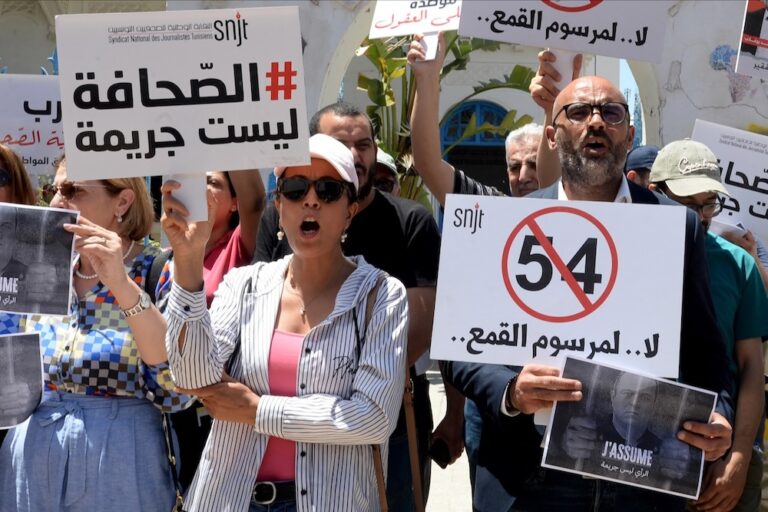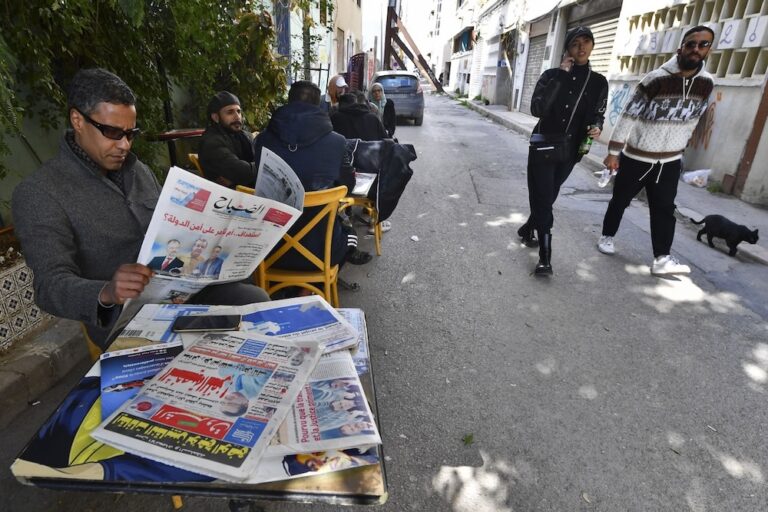The reform movement that began after the revolution has ground to a halt.
UPDATE: The National Body for the Reform of Information and Communication (INRIC) announced on 4 July that it has shut down after failing to achieve its objective, accusing the government of censorship. (ARTICLE 19, 4 July 2012)
(RSF/IFEX) – 27 June 2012 – Although promulgated more than six months ago, decree-law 115-2011 on the print media and decree-law 116-2012 on the broadcast media are still not being implemented despite repeated calls from civil society organizations, the National Authority for Information and Communication Reform (INRIC), the National Union of Tunisian Journalists (SNJT) and NGOs that defend freedom of information, including Reporters Without Borders.
The government, which has expressed a desire to amend these media laws before they are put into effect, organized a national consultation on legislation affecting the media and information on 27 and 28 April, but it did not result in any concrete proposals or decisions.
The reform movement that got under way immediately after the revolution has ground to a halt. The failure to implement the decree-laws is holding back renewal within the broadcast media and is preventing the emergence of real pluralism in the media and information sector.
The vague and contradictory legal situation is extremely dangerous for media freedom. Judges continue to use the criminal code to gag the media, above all article 121, paragraph 3, which penalizes “offending public decency.” In the absence of legislation governing the Internet, the criminal code is being systematically used to punish online content.
Reporters Without Borders calls for the immediate release of Jabeur El-Mejri, who has been jailed under the communication law and criminal code article 121, paragraph 3, for posting cartoons of the Prophet Mohammed on his Facebook page. An appeal court in Monastir upheld his seven-and-a-half-year jail sentence two days ago.
The media freedom organization urges the courts to overturn his sentence and the seven-and-a-half-year sentence passed in absentia on Ghazi El-Beji for the same reason. Beji has fled to Europe where he is seeking political asylum.
“The confirmation of Mejri’s sentence on appeal, just days after an attack on an exhibition in the Abdellia Palace in the Tunis district of La Marsa and the ensuing riots, has heightened our concern that religious censorship could take a permanent hold in Tunisia,” said Reporters Without Borders, which also deplores the unfair nature of the proceedings and the impact it could have on the future of media freedom.
“Such a severe sentence will only encourage the return of self-censorship. Ever since the Nessma TV trial and the jailing of Nasreddine Ben Saida, the owner of the newspaper Attounissia, penalties have been getting steadily more severe in cases involving public decency. The disproportionate sentences and the violence to which journalists are exposed are disturbing omens for the future.”
Journalists are subjected to physical violence with complete impunity. They are often targeted by members of Islamist or Salafist groups for allegedly flouting public decency or religious values. Reporters Without Borders urges the authorities to deal firmly with those responsible, regardless of their identity or ideology, and to remind everyone that violence is never justified. Freedom of expression and information must be guaranteed and protected in post-Ben Ali Tunisia.


